 Best case Covid scenarios
Best case Covid scenarios
written spring 2020
The best case CoronaVirus pandemic scenario is not only keeping the piles of corpses as small as possible, but it will stimulate a societal immune response for real resilience, sincere sustainabillity, compassionate civilization
herd immunity to Moron-a-virus-45:
a permanent state of emerge and see
global test of resiliency:
everyone participates
flatten the curve of the limits to growth on abundant, round, finite planet Earth

corona of August 2017 solar eclipse, photo by NASA
The best case coronavirus pandemic scenario
 is not only keeping the piles of corpses as small as possible, but it will stimulate a societal immune response for real resilience, sincere sustainabillity, compassionate civilization.
is not only keeping the piles of corpses as small as possible, but it will stimulate a societal immune response for real resilience, sincere sustainabillity, compassionate civilization.
The pandemic is a global exercise highlighting the wonderful and the hideous: international scientific cooperation and petty politics, aspirations of resilience and lack thereof, homelessness, prisons, mega-slums, refugees. We seem to have hit Peak Airplanes. Possibly Peak Food and Peak Population, too.
We are entering a profound break in the global economy. Coronavirus is a catalyst, a time out to consider the downslope ahead of climate chaos, peak everything, overconsumption, overpopulation, overshoot. It is a pause to consider where we are going as a civilization and species, to act as if we plan to stay part of the Earth.
We need to "flatten the curve" to the limits to endless growth on a round, abundant, finite planet.
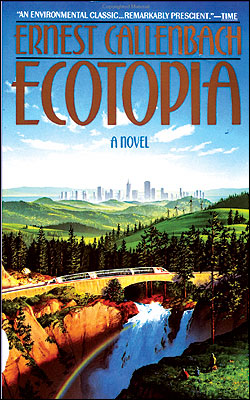 In 2008, David Holmgren, co-originator of permaculture, said recession did more to lower greenhouse gas emissions than anything else. Future Scenarios: How Communities can adapt to Peak Oil and Climate Change www.futurescenarios.org
In 2008, David Holmgren, co-originator of permaculture, said recession did more to lower greenhouse gas emissions than anything else. Future Scenarios: How Communities can adapt to Peak Oil and Climate Change www.futurescenarios.org
The coronavirus economic crash reduced energy consumption faster than any other event.
It would be nice to use the remaining finite concentrated fossil carbon to make solar panels and wind farms, to relocalize food production, improve rail transport. Solar power is great - I've used it for three decades - but living on our solar budget cannot replace using millions of years of accumulated fossil fuels.
Modern medicine, computer manufacturing, long distance trucking, aviation, steel, concrete, asphalt, cargo ships all require fossil fuels.
Einstein said the splitting of the atom changed everything except the way we live and thus we drift toward catastrophe. What we are all about to go through challenges the entire paradigm of industrial civilization.
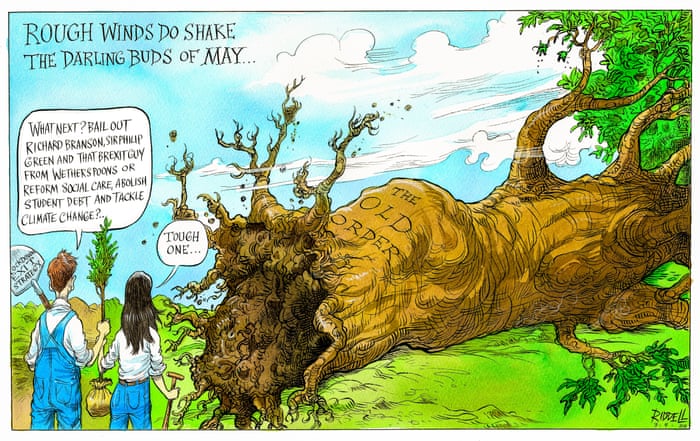 Our way of life - overconsumption, overpopulation, compound interest for money - is based on exponential growth (like a virus). Moving back toward balance would resemble the networks of mycelium (mushrooms are their fruiting bodies). Mycelia are networks, not hierarchies. They enable plants to share nutrients. Some species make medicinal mushrooms.
Our way of life - overconsumption, overpopulation, compound interest for money - is based on exponential growth (like a virus). Moving back toward balance would resemble the networks of mycelium (mushrooms are their fruiting bodies). Mycelia are networks, not hierarchies. They enable plants to share nutrients. Some species make medicinal mushrooms.
Health care, not warfare.
In the 1970s the global campaign to eradicate smallpox in the wild involved about a quarter million people for less than the cost of a B-1 bomber. This would be a better model to base crash programs to mitigate the pandemic than the Manhattan Project (which built the first nuclear weapons and nuked our democracy).

Our society - not only in the United States - delays action on most threats until the body counts pile up. This is true for warnings about the Boeing 737 MAX, the DC-10, nuclear weapons testing and nuclear power, countless toxic chemicals, the New Orleans levees and now, ignoring the spread of coronavirus until it engulfed much of the world.
The original SARS was about 10% lethal but fortunately not as transmissible as this one. If we had a pandemic with that lethality, there would not be any debate about the dangers, no campaigns to reopen anything, no plausible deniability that it might be a difficult flu. Instead, there might be much more religious zealotry about the end of the world due to a deity's wrath.
Coronavirus is an anagram of carnivorous, ironic given the role of eating meat in causing this and similar diseases. The COVID-19 outbreak is part of a pattern of diseases jumping from wild animals to humans: SARS-1, MERS, Ebola, Nipah, HIV. Eating "bush meat" is an excellent way for "zoonoses" (diseases from other species) to infect us. Factory farming for more conventional species such as chickens and cows uses more antibiotics than treating diseases in people, which created antibiotic resistant bacteria. The SARS-CoV-2 virus itself could be considered carnivorous because it eats our lungs. Making meat requires more energy, water and other inputs than growing food directly for people. Our overpopulated planet cannot sustain industrial meat production.
I hope predictions for a second wave, especially in the interior of the USA, are wrong. There are economic implications in this happening, but am even more concerned about the psychological breakdown of the society.
Remember, estimates for US casualties without staying at home were about 2 million, and with the shutdowns between 100,000 and 240,000.
Spikes in infections, hospitalizations, deaths may be part of the lesson about paying attention that we will learn, at great pain. Some of the "Dixie" states appear to be at the epicenters.
It's anyone's guess what happens to infection rates once restaurants, shopping mauls, hair salons and the like reopen. While viruses don't care about politics, it is probably noteworthy that many of the emerging hot spots are in places that voted for Dr. Trump. Painful lessons ahead.
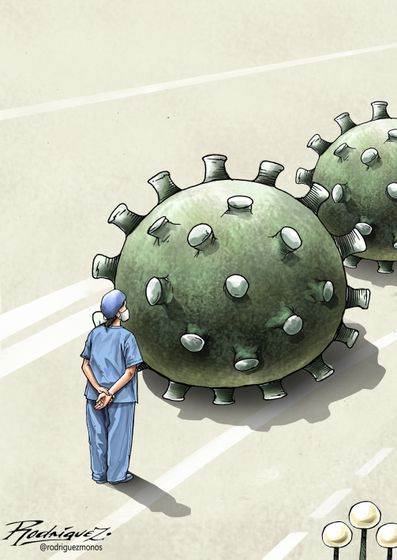 Laurie Garrett, who wrote The Coming Plague in 1994, says her best guess scenario is a 3 year corona-crisis. 3 years to develop and mass produce and then distribute a safe and effective vaccine would be the record. She warns that there is a danger in having a vaccine's approval rushed by the Trump FDA to have SOMETHING ready before the presidential election. The stakes for getting the vaccine(s) "right" could not be higher, except
Laurie Garrett, who wrote The Coming Plague in 1994, says her best guess scenario is a 3 year corona-crisis. 3 years to develop and mass produce and then distribute a safe and effective vaccine would be the record. She warns that there is a danger in having a vaccine's approval rushed by the Trump FDA to have SOMETHING ready before the presidential election. The stakes for getting the vaccine(s) "right" could not be higher, except
Viktor Frankl, a survivor of Auschwitz, said in "Man's Search for Meaning" that suffering is endurable if it has meaning. Coronavirus catastrophe was preventable and mitigatible but our society ignored warnings about this pandemic when it was still focused on Wuhan, and broadly, public health and ecological crises for decades.
If we had really taken this seriously the pandemic would be over already, since the virus cannot live outside of a host and it's been long enough to starve it. Coronavirus is a Socially Transmitted Disease.
Moron-a-virus-45 and cov-idiocy make coronavirus more severe. Trump is the most famous infection but there are many strains: conservative, liberal, neither. The 25th Amendment is a partial treatment but herd immunity would require critical thinking.
It's not the end of the world but it could be the end of complacency.
Mark Robinowitz, March 2020
"the coronavirus is a wake up call and our chance to build a new and loving society"

picture from The Guardian, March 16, 2020
President Kennedy: called off Cold War to convert militarism to international cooperation for global public health
On Sept. 20, 1963, President Kennedy made his second and last speech to the UN, calling off the Cold War and offering to convert the Moon race to a cooperative effort with the Soviet Union. He also called for converting military spending to actual needs such as international public health cooperation.
Health care, not warfare.
JFK
1963-09-20
UN General Assembly
excerpt:
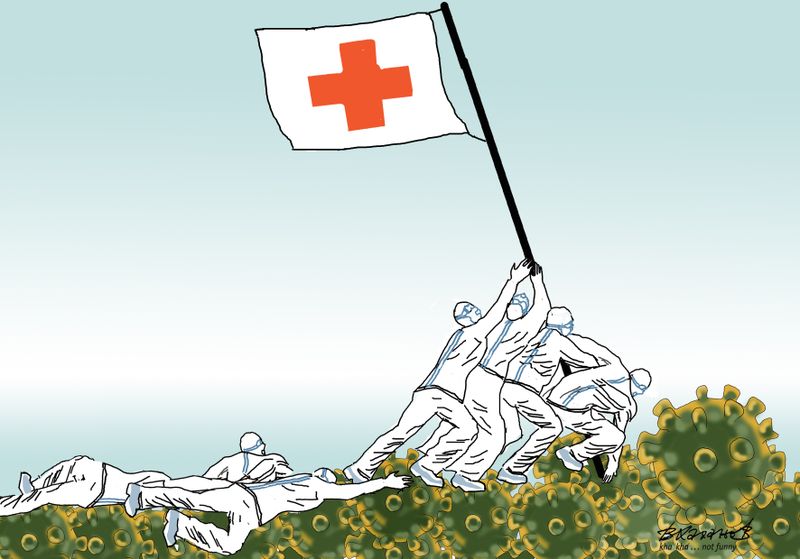 Finally, in a field where the United States and the Soviet Union have a special capacity--in the field of space--there is room for new cooperation, for further joint efforts in the regulation and exploration of space. I include among these possibilities a joint expedition to the moon. Space offers no problems of sovereignty; by resolution of this Assembly, the members of the United Nations have foresworn any claim to territorial rights in outer space or on celestial bodies, and declared that international law and the United Nations Charter will apply. Why, therefore, should man's first flight to the moon be a matter of national competition? Why should the United States and the Soviet Union, in preparing for such expeditions, become involved in immense duplications of research, construction, and expenditure? Surely we should explore whether the scientists and astronauts of our two countries--indeed of all the world--cannot work together in the conquest of space, sending someday in this decade to the moon not the representatives of a single nation, but the representatives of all of our countries. ....
Finally, in a field where the United States and the Soviet Union have a special capacity--in the field of space--there is room for new cooperation, for further joint efforts in the regulation and exploration of space. I include among these possibilities a joint expedition to the moon. Space offers no problems of sovereignty; by resolution of this Assembly, the members of the United Nations have foresworn any claim to territorial rights in outer space or on celestial bodies, and declared that international law and the United Nations Charter will apply. Why, therefore, should man's first flight to the moon be a matter of national competition? Why should the United States and the Soviet Union, in preparing for such expeditions, become involved in immense duplications of research, construction, and expenditure? Surely we should explore whether the scientists and astronauts of our two countries--indeed of all the world--cannot work together in the conquest of space, sending someday in this decade to the moon not the representatives of a single nation, but the representatives of all of our countries. ....
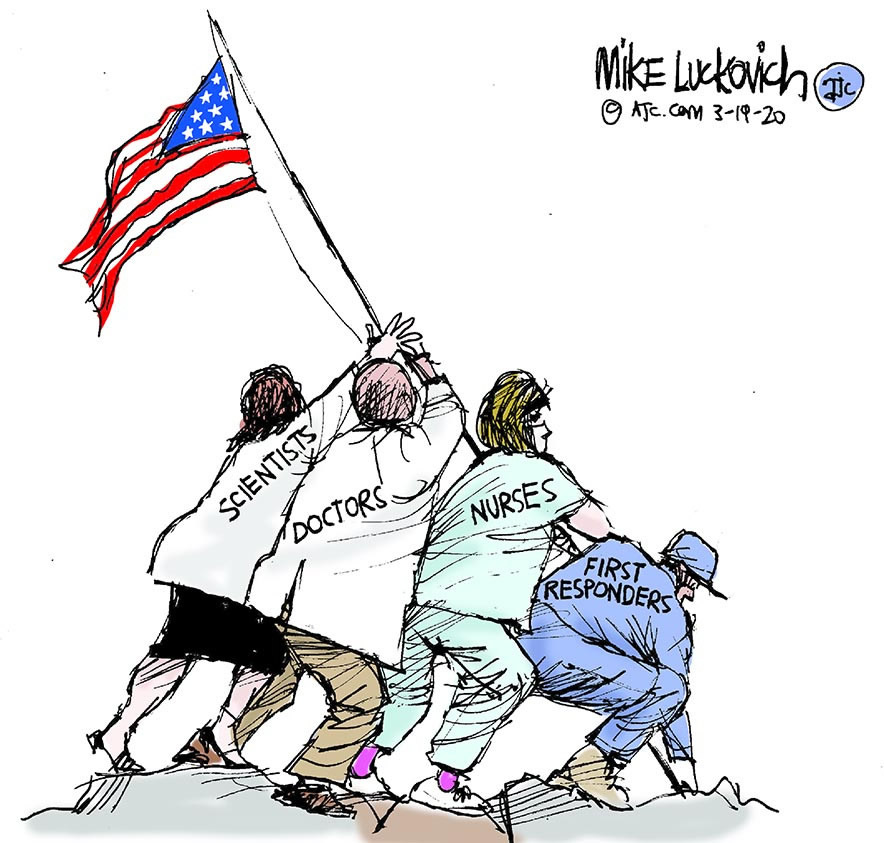 Never before has man had such capacity to control his own environment, to end thirst and hunger, to conquer poverty and disease, to banish illiteracy and massive human misery. We have the power to make this the best generation of mankind in the history of the world--or to make it the last.
Never before has man had such capacity to control his own environment, to end thirst and hunger, to conquer poverty and disease, to banish illiteracy and massive human misery. We have the power to make this the best generation of mankind in the history of the world--or to make it the last.
The United States since the close of the war has sent over $100 billion worth of assistance to nations seeking economic viability. And 2 years ago this week we formed a Peace Corps to help interested nations meet the demand for trained manpower. Other industrialized nations whose economies were rebuilt not so long ago with some help from us are now in turn recognizing their responsibility to the less developed nations.
The provision of development assistance by individual nations must go on. But the United Nations also must play a larger role in helping bring to all men the fruits of modern science and industry. A United Nations conference on this subject held earlier this year in Geneva opened new vistas for the developing countries. Next year a United Nations Conference on Trade will consider the needs of these nations for new markets. And more than four-fifths of the entire United Nations system can be found today mobilizing the weapons of science and technology for the United Nations' Decade of Development.
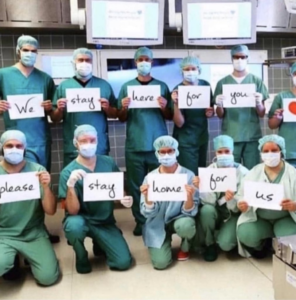 But more can be done.
But more can be done.
--A world center for health communications under the World Health Organization could warn of epidemics and the adverse effects of certain drugs as well as transmit the results of new experiments and new discoveries.
--Regional research centers could advance our common medical knowledge and train new scientists and doctors for new nations.
--A global system of satellites could provide communication and weather information for all corners of the earth.
--A worldwide program of conservation could protect the forest and wild game preserves now in danger of extinction for all time, improve the marine harvest of food from our oceans, and prevent the contamination of air and water by industrial as well as nuclear pollution.
--And, finally, a worldwide program of farm productivity and food distribution, similar to our country's "Food for Peace" program, could now give every child the food he needs. ….
But peace does not rest in charters and covenants alone. It lies in the hearts and minds of all people. And if it is cast out there, then no act, no pact, no treaty, no organization can hope to preserve it without the support and the wholehearted commitment of all people. So let us not rest all our hopes on parchment and on paper; let us strive to build peace, a desire for peace, a willingness to work for peace, in the hearts and minds of all our people. I believe that we can. I believe the problems of human destiny are not beyond the reach of human beings.
Two years ago I told this body that the United States had proposed, and was willing to sign, a limited test ban treaty. Today that treaty has been signed. It will not put an end to war. It will not remove basic conflicts. It will not secure freedom for all. But it can be a lever, and Archimedes, in explaining the principles of the lever, was said to have declared to his friends: "Give me a place where I can stand--and I shall move the world."
My fellow inhabitants of this planet: Let us take our stand here in this Assembly of nations. And let us see if we, in our own time, can move the world to a just and lasting peace.
-- President John F. Kennedy, September 20, 1963 speech to the UN calling for an end to the Cold War and converting the Moon race into an international cooperative effort, two months and two days before he was extrajudicially removed from office by the National Insecurity State
www.jfkmlkrfk.com/un.html

